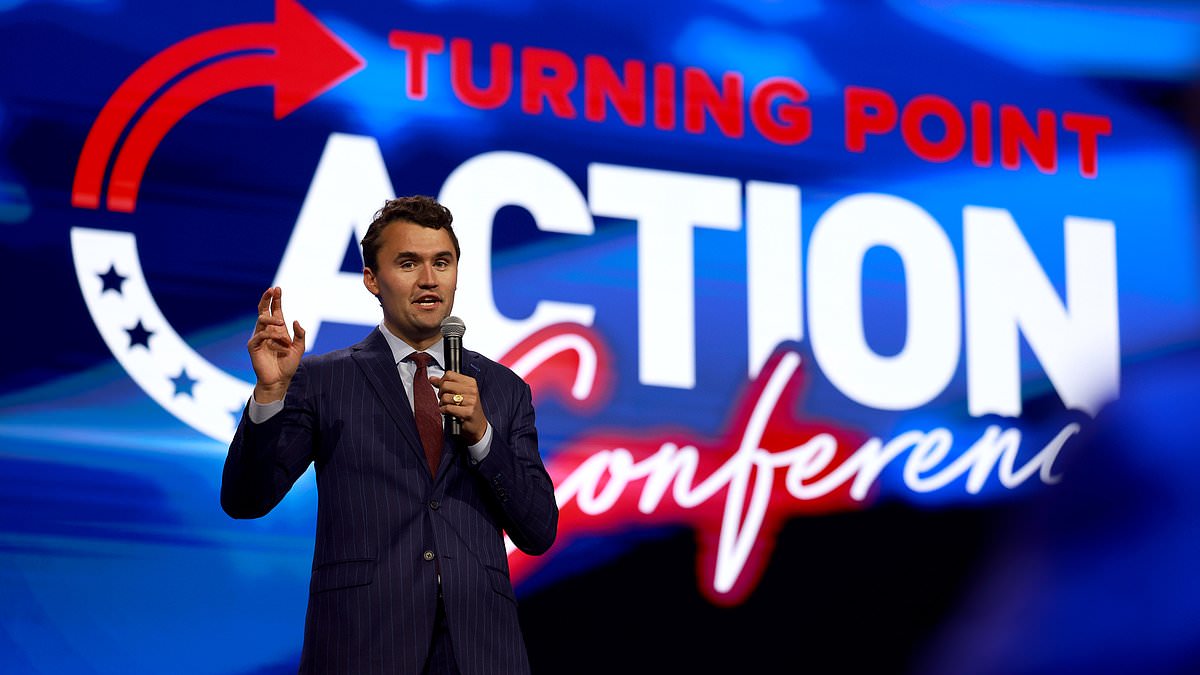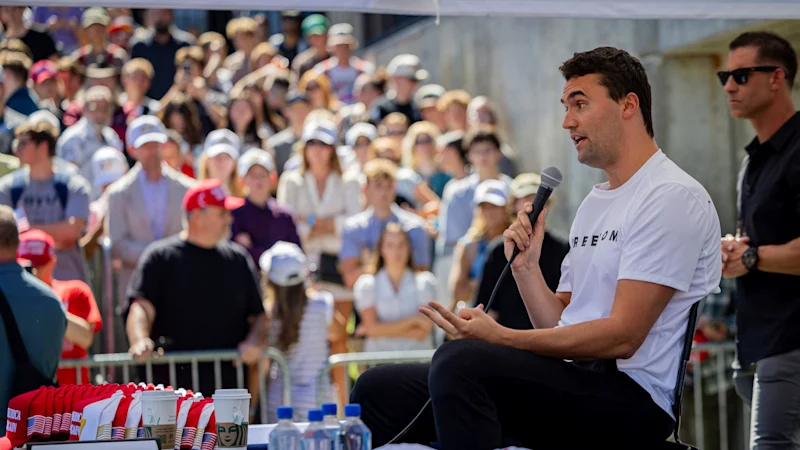My last phone call with Charlie: MARK HALPERIN remembers a dedicated, political genius, who didn’t hate anyone. Critics never understood that
By Editor,Mark Halperin
Copyright dailymail

There are people who enter a room the way morning light slips through the blinds — without a sound, but suddenly the outlines are clearer. Charlie Kirk lived in that light.
He made his life between the columns of policy and persuasion, where the day’s work shows up not as noise but as numbers — registrations counted, donors called, volunteers placed, arguments refined until they travel on their own power.
He was a man of math and science, but also of poetry and spirit.
He wore many titles and humbly managed to make each sound plain: political strategist, public speaker, video podcaster, fundraiser, organizer, lobbyist, builder.
When I asked him his profession a few months ago, he said preferred the unadorned word — ‘entrepreneur’ — as if he were describing a shop on Main Street that just happened to scale across a nation and around the world.
That was part of the charm: the grand project presented with a straight face and hard-working hands, big undertakings explained in the tone you use to order coffee.
What mattered most, in the end, was his spirit. He was not a hater — quite the opposite. I have met no one shrewder in politics at any age, and no one better liked in the movement he helped shape.
Power so often makes people small; it did not shrink him or make him arrogant. Imagine being thirty-one, running a $100 million enterprise, a lord in your party’s citadel, friends with the president and the vice president of the United States and a directory of leaders in business and politics — and not becoming brittle, vain, or cruel.
He didn’t. He carried success the way a good waiter studiously carries a tray: steady, attentive, unselfconscious.
If you think you don’t know someone under 25 who followed Charlie, was connecting to him vividly, you are mistaken. His current ran beneath dorm rooms and group chats, in church basements and county auditoriums, through comment threads and long car rides home.
He believed in the old disciplines: hard work, early mornings, no drugs, no alcohol, and very little sleep. He believed populism should be an accelerator, not a wildfire — the spark that moves an engine, not the blaze that consumes the forest.
Donald Trump and JD Vance loved him to the maximum each can love, which are two different temperatures of the same flame. They loved him for so many reasons, including that he kept his cool and did the work.
His inauguration party in January, like his annual political get-togethers, was the kind of spectacle that tempts adjectives to multiply — size, atmosphere, ambition, all in proportion to the figure at its center.
It felt like what happens when showmanship remembers its purpose: not to dazzle for its own sake, but to introduce people to each other and to the work ahead. He understood that public life is not merely argument; it is also staging, hospitality, and welcome.
Ideas need rooms and lights and microphones; they need an entrance and a path through the crowd. Charlie never forgot that, even as he was always in service of ideas and Jesus.
Among his many talents, he was one of the best marketers of political ideas I have seen. He would workshop a phrase, then refine it, then reimagine it, then strip it back until the most powerful case stood there, unembarrassed.
He measured success by clear metrics and disliked leaving any meeting without goals, timelines, and names beside each task. This was not just cold efficiency; it was a kind of care — an insistence that time is valuable and that nothing good becomes real by accident.
He was also teachable, which is rarer than it should be. He was willing — eager — to learn from anyone, including and especially his critics. If the other side framed an argument more cleanly, he asked why.
If they built a tool that worked, he wanted to understand the craft. He seemed to believe an old lesson: wisdom is found in many fields, and pride is a poor tutor.
The year 2024 brought a test. Traditional political consultants scoffed when he poured energy into voter registration and turnout. Those are sacred chores, they sniffed, not for ‘amateurs.’ He heard them, kept his counsel and proved them wrong.
The skeptical memos aged poorly. The totals came in. The work spoke. It was the parable of the talents told in spreadsheets: what you steward grows.
He liked to say that most Americans want simple, durable things: a healthy, happy family; a welcoming community; solid opportunities; a sense of optimism; a chance to feel pride in ourselves and in our country and confidence in our economic system. He treated that list not as a wish but as a set of assignments.
One by one, he matched actions to outcomes and outcomes to people’s lives. The ledger was moral before it was political. And it always stayed that way.
There were moments when he felt almost scriptural in the familiar way — nothing obscure, only the durable scenes everyone knows. He believed small beginnings could move mountains; he trusted the mustard seed.
He understood that the Good Samaritan did not outsource compassion; he stopped, tended, paid, and promised to return. He cherished the warning about building on sand. He worked as if the evening would ask for an accounting.
His manner carried the steadiness of someone who knows that human beings are forgetful but not faithless.
It will take time — more time than we think — for those who relied on him to remember, consistently, that he is not just around the corner, at the other end of a text — or text chain. That is what happens when a life is woven through other lives so tightly that the fabric carries his shape.
In a season of superpowers and superstores, of trade wars and drone wars and partisan wars, of screen time and serial Zooms and the disconcerting new world of AI, Charlie looked for the human fix: the handshake, the agenda with names on it, the ride to the polling place, the gentle insistence that clarity beats noise.
He made large things feel near at hand. He kept the fire in the hearth and the door open.
History will argue about eras and ideologies; it always does. But the testimony of the people who worked beside him is plainer. He was shrewd. He was kind. He was relentless about results.
He believed that big change begins as something small you can actually do today. In a world that rewards performance, he chose purpose. In a time that prizes the short-term hit, he chose order and sustained effort. When the evening came for Charlie, the column of what got done was longer than the column of what was said.
If there is a benediction suited to such a life, it is one everyone knows: well done, good and faithful servant.
Like so many I know, I will miss Charlie Kirk.
I already do.



